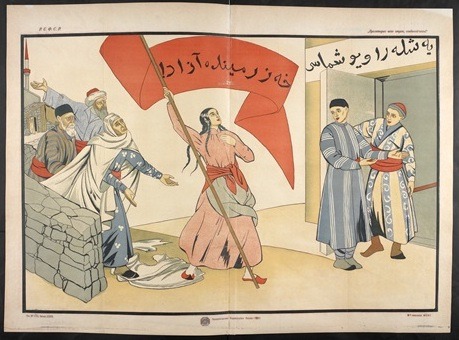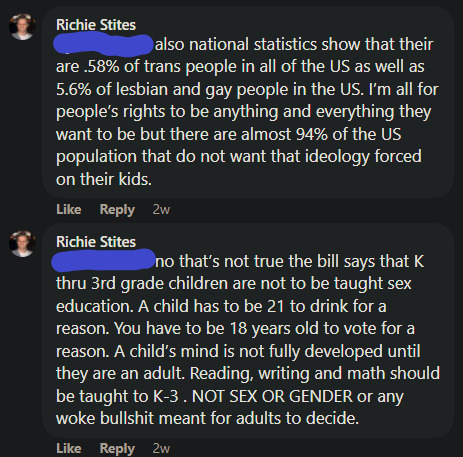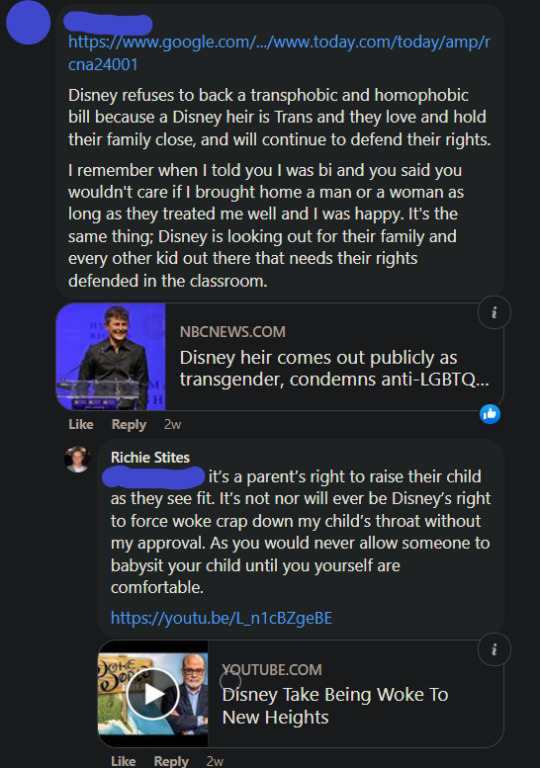#richard stites
Text
dead poets full name headcanons
Neil William Perry
Todd Alexander Anderson
Charles Isaiah "Charlie" Dalton
Knox Theodore Overstreet
Steven Kirby Meeks
Gerard Jesse Pitts
Richard Stephen Cameron
bonus
Christelle Brandy "Chris" Noel
Virginia Pearl "Ginny" Danburry
Nathan Laurent "Stick" Stites
Matthew Eugene ("Spaz") Schultz
Gloria Vivian Hayes
Tina Delphine James
Chester Frederick "Chet" Danburry
#haha kirby#dead poets society#dead poets fandom#dead poets headcanons#neil perry#todd anderson#knox overstreet#charlie dalton#steven meeks#richard cameron#chris noel#ginny danburry#gloria dead poets#tina dead poets#gloria and tina dead poets society#dps
76 notes
·
View notes
Note
so... mmhh... like... since we don't like stick's actor (richard stites)... how about we give spaz more space? we need more spaz content. yes. also, his actor is a good guy (james j. christy aka jim christy, you can find him on twitter @jchristy1515), even gale said it (he promoted his show). 👉👈
hmm yeah sounds good to me
i personally have very little opinion and interest on the actors tbh
22 notes
·
View notes
Text
A good explanation on why "the peasant work myth" is built on false assumptions. (TL; DR: work times were variable and based on need.)

(from Russia in the Era of NEP edited by Sheila Fitzpatrick, Alexander Rabinowitch, and Richard Stites)
16 notes
·
View notes
Text
I wonder if Richard Stites is aware that, 30 years later, a large portion of the current Dead Poets fandom is simping over his random background character
how does it feel to be so pretty that people create a personality and lore for your character without a single line?
I love Stick and Ginny both being pulled into the main ensemble in fanon despite barely being in the original movie
27 notes
·
View notes
Photo

This poster in Tatar depicts a Muslim woman as an agent of revolution
The reforms to improve women’s lives were, however, short-lived. By the mid- to late-1920s, both public and party attitudes towards family policy had become more conservative. In the 1930s, Stalin reversed many of the rights granted to women and families in the 1918 Family Code. Abortion was banned, divorce became extremely difficult to obtain, and the law on the rights of illegitimate children was revoked.
Stalin also closed the Zhenotdel (the party’s Women’s Bureau) in 1930 on the basis that women’s emancipation had been achieved in the Soviet Union and the department was therefore no longer needed. Despite this, throughout the entire history of the Soviet Union, women constituted (on average) only 3–4% of the party’s Central Committee.
The early Communist vision of women’s equality and liberation – where women would be able to work in any profession and communal institutions would take responsibility for childrearing and housekeeping – was never fully realised. As emphasis shifted back towards the traditional family unit in the 1930s, women were faced with the double burden of combining domestic duties with (often strenuous) full-time work.
Find out more
Anna Hillyar and Jane McDermid, Revolutionary women in Russia, 1870–1917: A Study in Collective Biography (Manchester; New York, 2000)
Barbara Alpern Engel, Women in Russia, 1700–2000 (Cambridge; New York, 2004)
Elizabeth A. Wood, The Baba and the Comrade: Gender and Politics in Revolutionary Russia (Bloomington, 1997)
Jane McDermid and Anna Hillyar, Midwives of Revolution: Female Bolsheviks and Women Workers in 1917 (London, 1999)
Laurie Stoff, They Fought for the Motherland: Russia’s Women Soldiers in World War I and the Revolution (Lawrence, Kan, 2006)
Richard Stites, The Women’s Liberation Movement in Russia: Feminism, Nihilism, and Bolshevism, 1860–1930 (Princeton, NJ; Oxford, 1991)
Rochelle Goldberg Ruthchild, Equality and Revolution: Women's Rights in the Russian Empire, 1905–1917 (Pittsburg, Pa., 2010)
Wilma Rule and Norma C. Noonan, eds., Russian Women in Politics and Society (Westport, Conn.; London, 1996)
Written by
Katie McElvanney
Katie McElvanney is an AHRC collaborative doctoral candidate at Queen Mary University of London and the British Library. Her research examines and compares the work and role of women in Bolshevik and anti-Bolshevik journalism during the October Revolution and civil wars, particularly focusing on the relationship between gender, political activism and journalism. As part of her PhD, Katie has been closely involved with the British Library’s Russian Revolution exhibition.
26 notes
·
View notes
Text
"It seemed to me that in your arms I felt your entire youthful world. Its despotism, its egoism, its desperate thirst for happiness—all of this was in your caresses. Your love is like murder. But – I love you, Lenni."
Alexander Bogdanov, Loren R. Graham, Richard Stites (1908/1984). Red Star: The First Bolshevik Utopia. p. 93
0 notes
Text

meet my triplets, Terror, Tractor, and Electrification
(Richard Stites, "Iconoclastic Currents in the Russian Revolution: Destroying and Preserving the Past," in Bolshevik Culture: Experiment and Order in the Russian Revolution)
1 note
·
View note
Text
youtube
I am pleased to release the full-length video for “Hey Now,” with an exclusive behind-the-scenes look into the making of my debut single! This project has been extraordinarily special for many reasons. One of the main objectives for this album was to capture the raw energy of our live performances and bring the audience into the recording process. We also brought a professional film crew into the recording studio to give an unprecedented look into our creative process and the forces behind this project. https://www.tycurtis.net/ https://linktr.ee/tycurtismusic MUSICIANS Dave Kahl - Bass Richard Lawrence - Drums Jerry Jacques - Percussion Steve Kerin - Keys Hank Shreve - Harmonica RECORDING STUDIO The Hallowed Halls MIXING/MASTERING Cooper Stites - Engineer Anton Pushansky - Mixing Chris Athens - Mastering MUSIC Executive Producer - Dan Hill Executive Producer - Ty Curtis Musical Producer - Richard Lawrence Label - Deep Stone Records FILM & MEDIA Servais Studios - Media Production PJ Servais - Director / Cam Op Matt Semchee - DP / Steadicam Op Cody Curtin - Post Supervisor / Cam Op Armando Navarro - Cam Op Christos Geogakopoulous - 1st AC Julie Nhem - 1st AC Jebari Dean - Production Audio Mixer Ryan Moore - Production Coordinator
0 notes
Text
stick!! He's so gorgeous


8 notes
·
View notes
Text
I had a dream last night where I rewatched Dead Poets Society but when I rewatched it, Stick actually had a line and his line was just him calling Neil “Perry”
#dead poets society#dps#dead poets#neil perry#stick dps#robert sean leonard#richard stites#stick my beloved
79 notes
·
View notes
Text
The dream of an administrative Utopia, military in spirit and symmetrical in shape, was a central motif in the history of early imperial Russia. It achieved its fullest force under Alexander I. In the reign of Nicholas I, what was left of the dream was part of a broader scheme of autocracy. In subsequent reigns, however rigid, the dream began to fade. Alexander II (1855-81) blasted huge holes in the smooth facade of administrative Utopia by emancipating the serfs and promoting the reforms—of local government, especially—that would preclude the drum and bugle society of Gatchina. Alexander III, the last of the consistently strongminded autocrats, launched a counterreform after the assassination of his father, but also set in motion a rapid program of industrialization which added industrial cities to the symmetrical garrison towns. And the last of the Romanovs, Nicholas II, while preserving the ceremonial pomp of St. Petersburg, personally nourished an earlier Christian Moscovite society as his model.
Administrative Utopia—like popular Utopia—springs from specific social and psychological bases. During the period in question, rulers were particularly self-conscious about their almost unlimited personal power to transform and were unusually amenable to borrowing easily assumed models and categories of administrative rule; their sense of power was in fact shaped by a formalistic fetish. They perceived their realm as exceptionally poor and weak and difficult to govern, composed overwhelmingly of illiterate serfs and state peasants. Their vague fear of Europe may have been joined by a sense of insecurity about their thrones in an age dotted with coups and putsches. The Russian tradition of drastic change from above ran deep and it fed the arrogance of administrative Utopia. In so-called backward societies, where firmly established communities of political and economic interest are weak or non-existent, Utopian vision is an etherealized form of politics where there is no other political life. It is symptomatic of the appeal of this kind of politics that Tsar Alexander I chose the visual "text" of Arakcheev's estate for his model of Russia over the sober and very verbal state reform project of Speransky.
Administrative Utopia declined in the late nineteenth century with the desimplification of Russian society and the rise of political and economic life. But the dream of a state power refashioning the land and the people was too alluring to die, and it appealed even to the most radical socialist dreamers who hated the tsarist state and whose ultimate vision was a stateless society. The allure was magnified in the Revolution by the reappearance of those things that had given it shape earlier: fear and insecurity, deep anxiety about how to create order and efficiency, the desire to provide the people with justice and food, and the lack of trust in the masses to create their own forms of rule and ways of life consonant with state survival.
Mentalities, moods, visions, and dreams are not permanent states of mind or feeling. They may pass and then resurge with renewed strength—not only from one generation to another, but within the same generation. Utopianism—popular and administrative—was activated by peculiar events or circumstances. Both forms expressed yearnings that declined in the late nineteenth century. Elements of popular Utopia captured peasants again in 1905-6 and in the Revolution of 1917; but some of these elements also passed into the mental makeup of the socialist intelligentsia, which kept them alive in a continuous literary and conversational discourse—what we now call the Russian radical tradition. In the same manner, elements of administrative Utopia captured the thinking of certain radicals even before they came into power, mingling with socialist ideology and adopted popular aspirations, and accounting for the utter complexity and richness of revolutionary behavior and thinking in the first decade of Soviet power.
- Stites, R 1989, "Administrative Utopia: Parade, Facade, Colony", Revolutionary Dreams: Utopian Vision and Experimental Life in the Russian Revolution, Oxford University Press, pp.23-24.
#richard stites#utopía#utopianism#administrative utopia#political theory#governmentality#hierarchy#russia#russian history#history#tsarist russia#authoritarianism#autocracy#enlightened absolutism#bureaucracy#alexander II#alexander III#feudalism#modernism#classism#modernity#elitism#russian revolution#ussr#soviet union#socialism#technocracy#ideology
6 notes
·
View notes
Note
EXPLAIN THE STICK ACTOR THING PLZ I AM LOSING MY MIND
5 notes
·
View notes
Text
I recently watched Dead Poets Society cause one of my dearest friends recommended it to me and oh, what an incredible film. It is so lovely and sad at the same time. I also bought the novelization just so I could underline and annotate all the moments and quotes I loved from the film. Definitely one of the most precious books in my small collection.
I also gotta say that I fell deeply in love with this guy even though he never said a thing during the film. Whoever you are, whatever is your name, I love you.

Edit:
Guys, I found another GIF of him! *screams of excitement*

Edit #2:
Now I know his name! It's Stick. I read somewhere that he's actually Nathan "Stick" Stites, but since everyone keeps naming him just Stick, I'll do it to.
Also, the actor who plays him is Richard Stites. I unfortunately didn't find much information about him, but anyway.
Stick is simply gorgeous and if anyone ever asks me what's my type I'm just gonna show them a picture of him <3
#dead poets society#deadpoets#dead poets headcanons#dps#carpediem#neil perry#todd anderson#knox overstreet#steven meeks#richard cameron#charlie dalton#gerard pitts#mr keating#1989#film#filmtv
114 notes
·
View notes
Text
I just found out thanks to @.juanthetoad on twitter that the actor who plays stick (richard stites) is homophobic and transphobic. He uses a facebook account to spew his hate so he is not a gay ally. You can like the character don’t worry, but the actor is hateful. I would’ve never found out if I didn’t go searching on twitter for it so I’m just passing along the message. Original tweet below:


https://twitter.com/juanthetoad/status/1519339979637653504?s=21&t=6iZuyJ75ciC86MZhzc68lg
25 notes
·
View notes
Photo

A little end of week networking fun - thanks to LexisNexis’ Whitney Lawson, Bradley Stites, Meghan Frank, Brendan Nelson for hosting and to Richard Pinto for sharing his brilliance. @denadacocktail is a brilliant mixologist teacher! @lexisnexisus (at Saline, Michigan) https://www.instagram.com/p/CO1G2pcjV7L/?igshid=1n3ey70xhwtdd
1 note
·
View note
Text
"It seemed to me that in your arms I felt your entire youthful world. Its despotism, its egoism, its desperate thirst for happiness—all of this was in your caresses. Your love is like murder. But – I love you, Lenni."
- Alexander Bogdanov, Loren R. Graham, Richard Stites (1908/1984). Red Star: The First Bolshevik Utopia. p. 93
5 notes
·
View notes